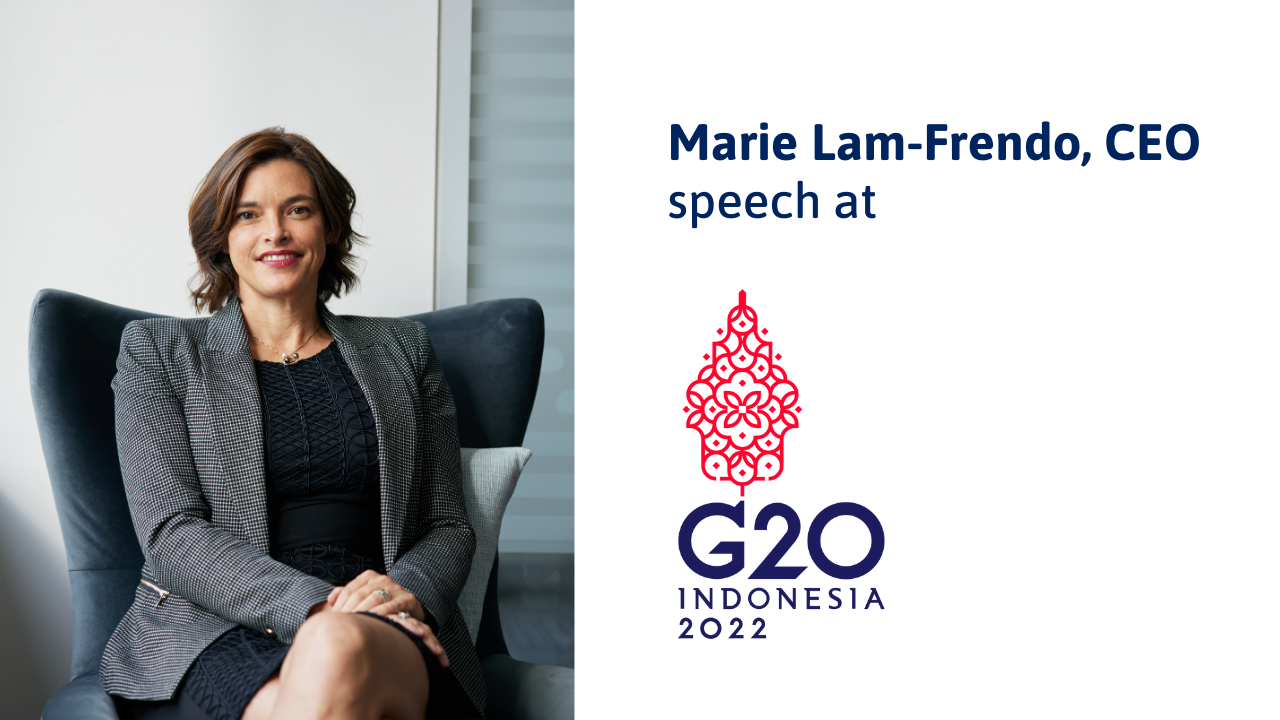86 results found
Featured results



More results
Our co-authored article with the Wilson Center explains how emerging and developing economies can create an enabling environment for private investment by de-risking at the country level
McKinsey interviews our CEO, Marie Lam-Frendo about key strategies to help infrastructure leaders to attract private investment and meet net zero goals
Interrelated challenges are common bottlenecks in the planning process for linear infrastructure designed to address climate change. This article explores how the Linear Infrastructure Planning Panel is enabling InfraTech for accessible decisionmaking.

In this article, the authors explore the successes and failures of the built environment’s digital transformation to date, why the Smart City concept is necessary but not sufficient and 3 steps for achieving the Adaptive City of the future – one which works for everyone.


The Coalition for Climate Resilient Investment (CCRI) today announced that it has successfully completed the transfer of its portfolio of government and investor-focused climate tools, solutions, and financial instruments to not-for-profit partners. Supported by the CCRI board, the GI Hub is intended to take the role of Secretariat, responsible for collaborating with and supporting the CCRI legacy partners who will continue delivering the core programs begun by CCRI.
To mark International Women’s Day 2023 we invited infrastructure students from University College London to quiz GI Hub leaders on how innovation and technology can advance gender equality.
What qualifies as critical infrastructure, and what can governments and industry do to increase its resilience? We spoke to four experts for their perspectives.
The Investor Leadership Network created this playbook to help institutional investors better assess and incorporate inclusion into portfolios. It provides the business case for inclusion, fundamental and advanced inclusion metrics, and case studies of the metrics being used.




The G20/GI Hub Framework on How to Best Leverage Private Sector Participation to Scale Up Sustainable Infrastructure, which sets out opportunity areas and actions for the G20 to enable the private sector to scale up its investments in sustainable infrastructure.

The LTIIA's report on Climate-Resilient Infrastructure: How to scale up private investment examines the current state of climate-resilient infrastructure investment and brings forward recommendations and proposals.

Watch the webinar hosted by GI Hub and IFC, in collaboration with the G20 Indonesian Presidency, on enhancing social inclusion and addressing subnational disparities
Join us for a webinar that will highlight solutions for governments and project proponents to mobilise private financing and inclusive infrastructure investment in order to reach vulnerable groups and underserved regions.
To celebrate International Women’s Day 2022, we interviewed three female leaders at the GI Hub to explore how we can collectively #BreakTheBias and address inequality in infrastructure. The third Q&A in this series is with Monica Bennett, GI Hub’s Director of Thought Leadership.
To celebrate International Women’s Day 2022, we interviewed three female leaders at the GI Hub to explore how we can collectively #BreakTheBias and address inequality in infrastructure. The second Q&A in this series is with Cinthya Pastor, GI Hub’s Director of Economics.
To celebrate International Women’s Day 2022, we interviewed three female leaders at the GI Hub to explore how we can collectively #BreakTheBias and address inequality in infrastructure. The first Q&A in this series is with Maud de Vautibault, GI Hub’s Director of Practical Tools and Knowledge.
Today, the GI Hub has launched a new resource that shows how G20 governments are spending the USD3.2 trillion in infrastructure as a stimulus.
Infrastructure is one of the least technologically transformed sectors of the economy and there is a global consensus that our industry needs innovation to solve big challenges like the resilience of infrastructure during future pandemics, the rise of climate change, urbanisation, and an ageing population
The Reference tool is meant to serve as a practical tool to help governments and other stakeholders understand and implement the critical success factors that deliver inclusive infrastructure. The Framework for Inclusive Infrastructure summarises the following six Actions Areas and related practices that ought to be considered for the systematic implementation of inclusivity in infrastructure at the policy and project levels.



 InfraCompass
InfraCompass














